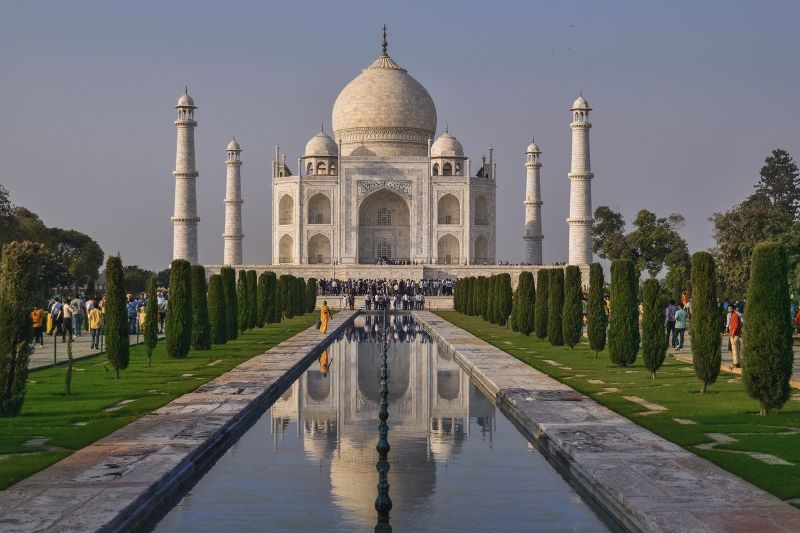
(TAN): Taj Mahal will finally open its doors again on September 21 after remaining closed for nearly six months. The monument, designated as a UNESCO World Heritage Site, was closed for this long for the first time in its history because of the COVID-19 pandemic.
Along with Taj, Agra Fort will also reopen the same day in full conformance with the Covid-19 protocols issued by the Centre as well as the UP government, said Agra District Magistrate Prabhu N. Singh. He added that entry to the Taj Mahal has been limited to 5,000 tourists in a day while only 2500 tourists will be allowed into the Agra Fort.
[ALSO READ: IHCL’s Bizcation- Work while enjoying a vacation with your family]
Taj Mahal and Agra Fort remained shut as per the district administration’s orders, even as all other ASI-protected monuments in Agra were allowed to open from September 1. This is because the two historic structures were located close to containment zones.
Media reports said, visitors will have to follow all guidelines issued by the Centre such as social distancing and hand sanitisation. Masks are mandatory. Ticket counters will remain shut. Tickets must be purchased online or through the Archaeological Survey of India mobile app.
Referring to the longest ever closure in the history of Taj Mahal, former chairman of Agra Tourism Guild Arun Dang said, “The extent of damage it has caused to the tourism industry of Agra is incalculable.” Agra Tourist Welfare Chamber President Prahalad Agarwal is of the opinion that before reopening these popular tourist attractions, it is necessary that international flights and trains to the city resume.
[ALSO READ: India- Sun Temple at Konark, Odisha opens after 5 months]
Agra MP S.P. Singh Baghel said, “The closure of this monument has nearly destroyed the tourism industry of Agra and until it is reopened, there is no possibility of improvement in the city’s economy.” He added that there is no point in keeping the Taj Mahal closed, when the main markets of the city are open.
The Taj Mahal was among the country’s first public places to be closed in March due to the growing Covid-19 threat, even before the nationwide lockdown came into force.




